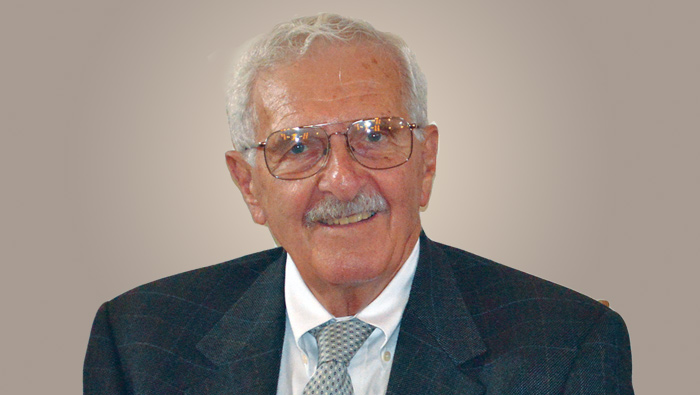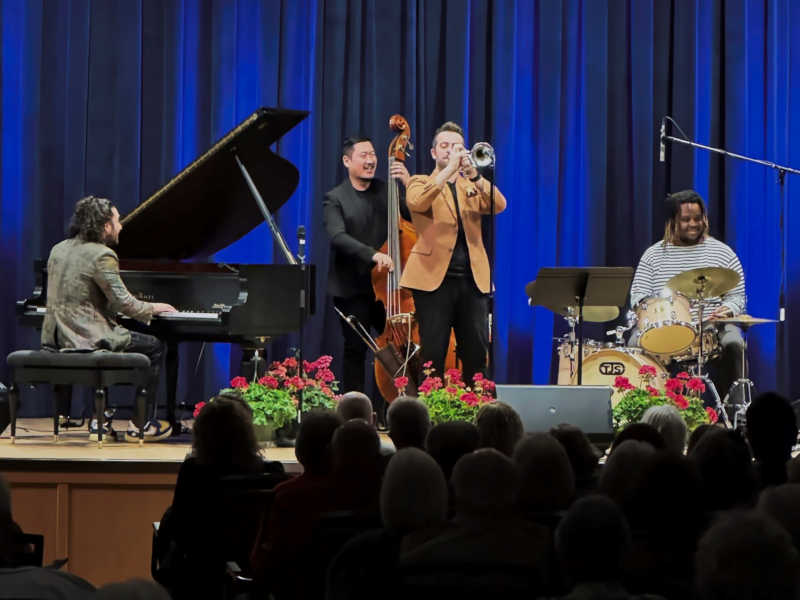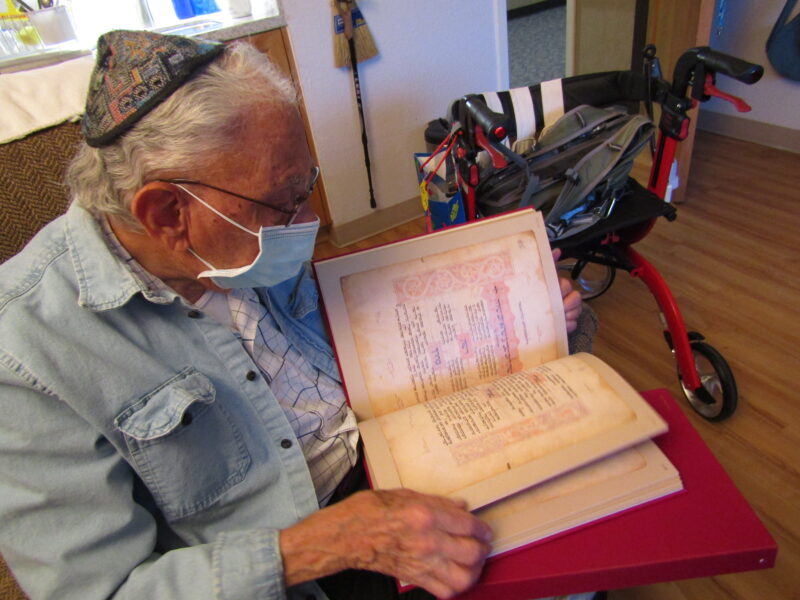Stanley G. Feldman, 82, retired as an Arizona Supreme Court justice in 2002, but he hasn’t retired from the legal profession.
“I still work more or less full time,” says Feldman, who in 2003 returned to Haralson, Miller, Pitt, Feldman & McAnally – the firm he helped found. The former Arizona Supreme Court justice represents clients in major personal injury, wrongful death, products liability, employment and other civil litigation.
Now in his sixth decade of fighting for the rights of all, Feldman says legal cases are currently “more complicated, more specialized.”
To our benefit, he says, “the law now recognizes more rights for ordinary people,” plus people’s rights against bad products as well as abuse by large corporations and government.
An example of such a case, one that he worked on, lasted for 20 years. The case involved the Maricopa County Flood Control District and farmers in Gila Bend. In 1982, the Flood Control District undertook a 10-year flood control project that was supposed to prevent a repeat of large floods that occurred in the area a few years before. However, the project exacerbated the flooding problem, and in 1993 there was another flood that caused more than $12 million in property damages to the farmers who owned property downstream from Gillespie Dam, originally built in 1921. The farmers sued the District in 1995, and after five appeals and various other court proceedings, the Maricopa County Flood Control District was finally deemed liable for flood damages to the farmland. The case finally settled in 2015.
The biggest change in the law, says Feldman, is more diversity in the bar. “There are more women lawyers and judges now, which was a rarity in the 1950s.”
Lack of diversity affected Feldman himself as a young lawyer.
In 1956, after graduating first in his class at the University of Arizona College of Law, “I couldn’t get an interview in Tucson or Phoenix because I was Jewish,” says Feldman. “At first, I was quite hurt by that. I went out on my own. There were a few Jewish lawyers in Tucson, but they didn’t need any help.”
That hesitation to hire Jews, women or Hispanics “is more or less gone” today, he says.
Feldman’s first law office was across the street from brothers Morris and Stewart Udall on North Court Street. “I worked with them. I learned to practice law the way you should from Morris,” notes Feldman. “He was an honest, forthright guy with a great sense of humor.” During their careers, the Udall brothers were active in local and national politics, with Morris serving in the U.S. House of Representatives from 1961 to 1991 and Stewart elected to the House for three terms before serving as U.S. Secretary of the Interior under Presidents Kennedy and Johnson.
Gov. Bruce Babbitt appointed Feldman to the Arizona Supreme Court in 1982, where he served for 21 years, including five as chief justice, from 1992 to 1996. Two of the most interesting cases he ruled on while on the highest court, says Feldman, were the impeachment trial of Gov. Evan Mecham in 1988 and Gov. John Fife Symington III’s fraud case leading to his resignation in 1997.
Feldman laments “the growing influence of special interest groups. The [Arizona] legislature keeps trying to politicize the appointment of judges. They’ve been fended off so far by the bar,” he says, adding that the legislators want to get rid of our merit system and return to open election of judges. “This would put pressure on our judicial system.”
Arizona’s merit selection of judges for the Supreme Court and Court of Appeals and the superior courts in Maricopa, Pima and Pinal counties, says Feldman, “insulates judges from raising money and from political partisanship.”
Commenting on how we’re treating undocumented immigrants in Arizona and across the country, he says, “The appeal to fear, bigotry and nativism, really disturbs me.”
Feldman notes that his parents and grandparents were Russian Jewish immigrants; his mother’s side came from Ukraine and his father’s side came from what’s now Belarus. His family came from New York to Tucson around 1939, in the middle of the Depression, for his mother’s health.
The “dreamers,” or young people who were brought to this country as children, he says, “have to live under cover. They are really Americans, and the inability of Congress to handle the problem is shameful, really shameful.”
Feldman quips that his wife, Norma Padilla Feldman, “is waiting to be accused of being illegal, but I wouldn’t want to be the officer who stopped her. But they won’t do that because she drives a nice car and wears nice clothes.”
A seventh-generation Arizonan, her family was living in Gilbert before the Mexican-American War was settled in 1848 by the Treaty of Guadalupe Hidalgo. Under the treaty, the Mexicans living in the area covered by the agreement were given the option of staying and becoming U.S. citizens.
“How many people can say they’re seventh-generation anything?” asks Feldman.
As a first-generation Jewish Supreme Court justice, Feldman has clearly made his mark in the state.
Feldman currently serves on the boards of the Arizona Attorneys for Justice (formerly Arizona Trial Lawyers Association); J. Byron McCormick Society for Law and Public Affairs, James E. Rogers College of Law; Arizona Center for Law in the Public Interest; Arizona Justice Project and United Policyholders (a national consumer organization protecting insureds).
He has received numerous awards, including the Judge Learned Hand Award for Public Service presented by the American Jewish Committee in March 2003; a Lifetime Achievement Award presented by James E. Rogers College of Law, University of Arizona, in September 2004 and the Jewish Heritage Award presented by Tucson’s Jewish History Museum in October 2014. Feldman didn’t accept this last award as personal as much as, he says, “I took it as an acknowledgment of how far the whole community has come.”






